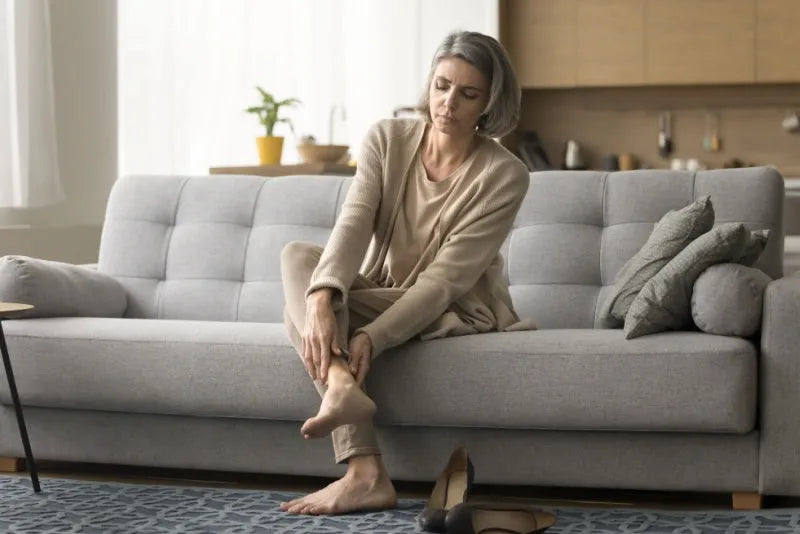
How Does Menopause Affect Joint Health?
As women approach menopause, there’s a lot of chatter about hot flashes, mood swings, and changes in skin elasticity. But one area often left out of the conversation is joint health. If you've noticed your knees feeling creaky or your shoulders stiffer than usual, you’re not imagining things—menopause might be playing a part.
Why Does Menopause Impact Joints?

Menopause triggers a significant drop in estrogen, a hormone that does more than just regulate your menstrual cycle. It plays a big role in keeping your joints and bones healthy. Estrogen has anti-inflammatory properties, so when levels decrease, it can lead to more inflammation throughout the body, including in your joints.
This hormonal shift affects the cartilage (the cushioning between your bones), making it thinner and less effective at absorbing impact. The result? Achy, stiff, and sometimes swollen joints. And it's not just one or two joints—it can affect multiple areas, from your knees and hips to your hands and shoulders.
Common Symptoms of Menopausal Joint Pain

- Stiffness: You might feel it most in the morning or after sitting for long periods.
- Aching: Achy joints, especially in the knees, hips, and lower back, are common.
- Swelling: Joints can become inflamed, making them feel puffy or tender.
- Reduced Mobility: You might find it harder to move certain joints as freely as before.
Is It Just Aging?

You might wonder, “Aren’t these symptoms just a part of getting older?” Aging can definitely contribute to joint pain, but menopause speeds up this process. Studies show that women in their menopausal years are more likely to experience joint issues than men of the same age due to the sharp decline in estrogen. It’s a unique combination of aging and hormonal changes that makes menopause a double whammy for joint health.
How to Ease Menopausal Joint Pain
Stay Active, but Gentle: Exercise is key, but don’t overdo it. Low-impact exercises like walking, swimming, and yoga help strengthen muscles around the joints, improving flexibility and reducing pain. Plus, regular movement keeps joints lubricated, making them less prone to stiffness.

Focus on Anti-Inflammatory Foods: Certain foods can help fight inflammation and protect your joints. Incorporate omega-3 fatty acids from sources like salmon, flaxseed, and walnuts, and add antioxidant-rich foods like berries and leafy greens to your diet. Avoid processed foods, as they can increase inflammation.
Strength Training: Maintaining muscle mass around your joints can prevent pain and improve stability. Light resistance training with weights or bands a couple of times a week can make a significant difference in how your joints feel.

Stay Hydrated: Cartilage in your joints is mostly made of water, so staying hydrated helps maintain its elasticity and cushioning effect. Drink plenty of water throughout the day to keep your joints lubricated.
Supplements: Consider adding an organic supplement to your routine.
Discover Natural Joint from Greek Island Labs
 Product Overview:
Product Overview:
- Description: Natural Joint from Greek Island Labs combines 37 natural vegetarian ingredients inspired by the Mediterranean diet. It’s designed to support joint health without affecting blood sugar levels, unlike some other supplements.
- Benefits: Many users report noticeable improvements in joint comfort and mobility.
Usage Instructions:
- Dosage: For severe pain, take one capsule twice daily with a full glass of water—once in the morning and once in the afternoon. After 14 days, adjust to one capsule per day as needed.
- Maintenance: For mild pain or prevention, one capsule daily is often sufficient.
Always consult with your doctor before adding supplements to your routine.
Final Thoughts
Menopause is a natural stage of life, but that doesn’t mean you have to suffer in silence. Understanding how it affects your joint health is the first step to taking proactive measures. With the right lifestyle adjustments, you can manage menopausal joint pain and keep moving with ease—whether it’s hiking your favorite trail, chasing after grandkids, or simply walking without discomfort.
Embrace this phase of life with flexibility and grace—your joints will thank you!
